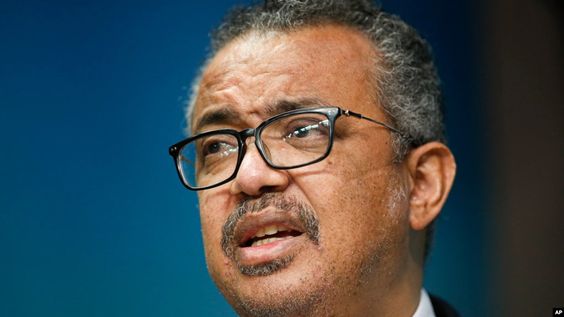Africa
Tigray Needs ‘Immediate’ Food and Medical Assistance, Says WHO

The World Health Organization called for a major infusion of food and medicines into Ethiopia’s Tigray area on Wednesday since the cease-fire agreement negotiated by the fighting parties last week had not yet allowed for the entry of this badly needed supplies.
After two years of deadly fighting, the WHO stated that the people of Tigray required immediate help and that access to the area was severely constrained.
Ethiopia’s northernmost area has entered a serious humanitarian crisis as a result of the battle between government forces and Tigrayan rebels, with just a trickle of aid making it through.
While praising the historic cease-fire established on November 2, WHO director Tedros Adhanom Ghebreyesus cautioned that a week had passed and “nothing is happening in terms of food supplies or medicines.”
At a news conference, he stated, “Many people are dying from preventable diseases, and many more are dying from famine. “Civilians still require food and medical care even when there is conflict. It can’t be a disease.
“I was hoping that food and medication would suddenly come right away, especially following the cease-fire agreement. That’s not going to happen.
Let’s give peace a chance, he continued. However, we would also advocate for the prompt supply of food and medication.
Tedros, a native of Tigray, served as both the health and foreign ministers of Ethiopia.
Because “everything that has happened in the last two years has been done in total darkness, and 6 million people have been completely separated, shut off from the rest of the world as if they don’t exist,” he called for reopening basic services like banking and telecoms and allowing journalists into the area.
appeal for unrestricted access
Less than 48 hours before the second anniversary of the start of the conflict, the government in Addis Abeba and the Tigrayan rebels signed a deal following nine days of negotiations in Pretoria, South Africa, under the auspices of the African Union.
In a joint statement, the two sides declared that they would put an end to hostilities right away, disarm the rebels, for humanitarian supplies to resume, and bring essential services back online.
Michael Ryan, head of WHO emergencies, praised the idea of a humanitarian corridor into Tigray but emphasized that it was crucial that the corridor stay accessible “and unconstrained” based on experience in prior crises.
Ryan stated that the people of Tigray “need immediate, tremendous, overwhelming support immediately,” not just in the form of food and medical treatment but also in the form of products and commodities, as well as the freedom of employees to provide the relief.
A “drip-drip” flow of assistance, or help that is turned on and off, according to Ryan, “is not going to work.”
“We still stay on standby to take advantage of any opportunity to deliver lifesaving help to the people there right now,” he added, a week after the cease-fire.
